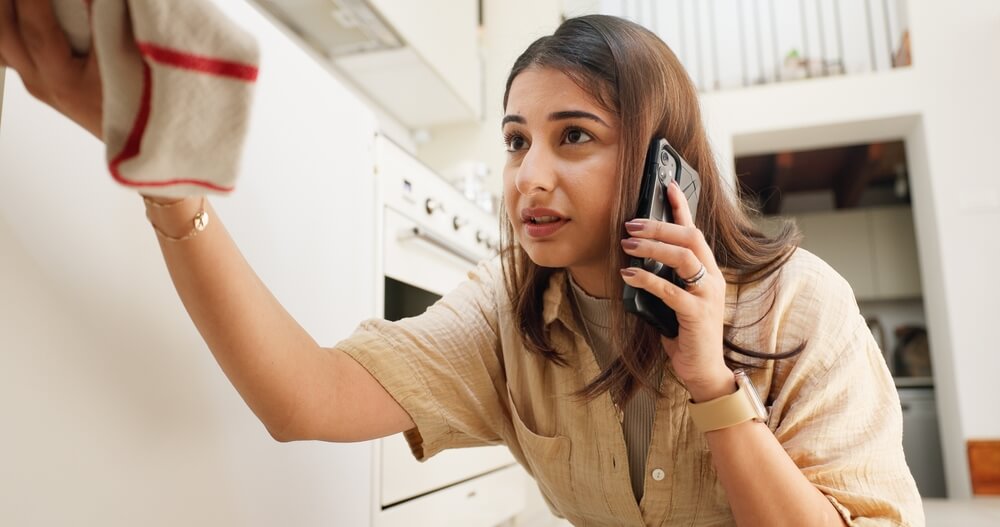How to Safeguard Your Home from Water Damage in Georgia’s Fall and Winter
Fall in Georgia is beautiful until it isn’t. One minute you’re enjoying crisp mornings and leaves on the ground, the next your gutters are clogged, your basement is damp, and you’re calling a plumber because a pipe burst after a sudden cold snap. Winter doesn’t make things easier, either. While we don’t get Minnesota-level blizzards here, the storms, heavy rains, and surprise freezes can cause serious water damage if you’re not ready.
The good news? You can do a lot to prevent water damage. And when prevention isn’t enough, Georgia home insurance from Velox Insurance has your back — at least if you know what’s covered and what’s not. Let’s break it down.
Common Causes of Water Damage in Georgia’s Fall and Winter
The truth is water damage doesn’t care if you’re in Atlanta, Columbus, or a small town up in the mountains. If you don’t take precautions, your home can end up with soaked walls, ruined flooring, and mold creeping in where you least expect it. And unfortunately, those repairs aren’t cheap. Here are the typical causes of water damage in the fall and winter in the Peach State.
Heavy Rain and Flooding
If you’ve lived here long enough, you know the drill: It rains hard, drains overflow, and suddenly your yard looks like a pond. Flash flooding is a real issue, especially in low-lying areas or older neighborhoods with outdated storm systems.
Even if you’re not near a river, water can sneak in through cracks in your foundation or seep into crawl spaces. This kind of damage can become especially problematic if water is sloping toward your home instead of away from it due to yard grading. If you have a basement, invest in a sump pump to help protect your foundation.
Burst Pipes and Freezing Risks
Georgia winters aren’t brutal, but that’s actually the problem. Because freezes are rare, a lot of homes don’t have insulated plumbing. When the temperature dips into the 20s, pipes in your attic, crawl space, or garage can freeze and burst. It only takes one night of hard freeze to ruin your drywall, flooring, and maybe even your holiday spirit.
Here’s the play: Wrap exposed pipes in insulation (foam sleeves are cheap at a home improvement store), disconnect hoses, and shut off outside faucets before Thanksgiving. On freezing nights, leave your indoor faucets dripping and open cabinet doors under sinks so warm air gets in.
Roof Leaks and Gutter Issues
Leaves are nice when they’re on trees, but not when they’re jammed in your gutters. Once gutters clog, rainwater backs up, spills over, and ends up where it doesn’t belong: behind your siding, inside your walls, or soaking your foundation. Add in Georgia’s occasional ice storms, and suddenly you’ve got water working its way through weak spots in your roof.
Keep reading for some tips for how to stop gutter issues and roof leaks before they happen. And make sure to check your shingles once in a while — or get some help to climb up there and have a look.
How Homeowners Insurance Protects Against Water Damage
Obviously, your first line of defense against water damage is the preventative maintenance you’ve taken beforehand. But the second line of defense is your homeowners insurance policy. If something does happen, you want to know that your policy has appropriately covered you for any type of risk that might reasonably pop up — and that appropriately balances the ideal premium and deductible for your specific financial situation.
It’s also worth clearing up a few common homeowners insurance myths, especially when it comes to water damage. Many people assume every kind of water damage is automatically covered, but that’s not the case. Understanding what’s included — and what isn’t — will save you from surprises when you need coverage the most. Your friendly neighborhood Velox agent can walk you through the details.

What’s Typically Covered
Most Georgia home insurance policies cover sudden and accidental water damage. So if a pipe bursts or a storm rips shingles off your roof, your policy helps pay for the mess, repairs, damaged belongings, and sometimes hotel costs if you have to move out temporarily.
What’s Excluded from Coverage
Here’s the kicker: not everything is covered under a standard Georgia homeowners insurance policy. Damage from rising groundwater or flooding is usually excluded, so if you live in a flood-prone area like Savannah or Augusta, you’ll need a separate flood policy to stay protected. This is something many people discover the hard way, especially those looking into homeowners insurance for coastal properties where flood risks tend to be higher.
Other common exclusions include slow leaks and damage caused by problems that were neglected over time. In general, if the damage wasn’t sudden or accidental, your insurance company probably won’t cover these problems.
Filing a Water Damage Claim
If you do get hit, don’t drag your feet. Document the damage with photos, make temporary fixes (like putting up a tarp or shutting off water), and call your insurance company as soon as possible. Keep receipts for anything you buy to prevent further damage because you’ll need them.
Prevention Tips to Protect Your Home
An ounce of prevention is worth a pound of cure. And that saying couldn’t be truer when it comes to your home and water damage prevention. But winterproofing your home doesn’t have to be a major challenge.
Some of the basics you’ll want to take care of include keeping your gutters in tip-top shape, maintaining plumbing systems, and preparing for those one-off heavy rainstorms and floods, and other seasonal home risks, especially if you live in a flood zone. Speaking of which, FEMA maintains a flood map service center that helps you find out if your property happens to be in a particularly dangerous water situation!
Inspecting and Cleaning Gutters
Yes, cleaning gutters is gross, but it’s the simplest way to stop water damage. Do it in late October and again in December. If your house is under big oak or pine trees, you might need to do it more often. Add gutter guards if you’re tired of climbing ladders. A professional can help you with the installation. Look, fall home maintenance is no joke. When those leaves start piling up, make sure you take care of them.
Maintaining Plumbing Systems
Preventing water damage means making sure the pipes are working correctly. Don’t wait for that first freeze warning to think about your pipes. Insulate them now. Drain your outdoor faucets, disconnect hoses, and know where your main water shut-off valve is.
If you’re heading out of town for the holidays, don’t turn the heat off completely, but rather keep it set to at least 55°F so your pipes don’t freeze while you’re gone. Winter home safety involves keeping water out, pipes ice-free, and your structure secure.
Preparing for Heavy Rain and Floods
If your home is in a flood-prone area, you need a sump pump. Period. Test it before the rainy season and consider getting a battery backup. Store important documents in waterproof containers, and if you’ve got valuables in your basement, get them off the floor.
You’d think that any good Georgia homeowners guide will mention that documents need to be in waterproof containers, but you’d be surprised how many homeowners end up with soggy paperwork and a headache when they need those files most.
Protect Your Georgia Home, Reach Out to Velox Today
You can’t stop the rain from falling or the temperature from dipping below freezing, but you can prepare. By taking a little time this fall to weatherproof your home and by having the right Georgia home insurance, you’ll save yourself a lot of stress (and money) down the road.
Velox Insurance is here to help you find a policy that covers your specific needs, whether that’s flood insurance, storm protection, or just making sure you’re not overpaying. Give us a call at (855) 468-3569, get a quote online, or visit one of our Georgia offices near you!
Frequently Asked Questions
What Are the First Signs of Water Damage I Should Look for in My Home?
Look for brown stains on your ceiling, musty smells, peeling paint, or warped floors. A sudden spike in your water bill can also be a red flag. Can Seasonal Landscaping Help Prevent Water Damage?
Yes. You can use landscaping to direct water away from your foundation. Keep soil sloping away from your house, maintain mulch beds, and avoid planting water-loving trees like willows too close to your home.
Are There Specific Insurance Policies for Flood or Storm Damage?
Yes. Standard homeowners insurance won’t cover flooding, so if you’re near a flood zone, you’ll need a separate flood policy. Storm-related issues like roof leaks after high winds are typically covered, but it’s smart to double-check with your agent, and you especially want to avoid common home insurance mistakes like not having the right protection for flooding.



